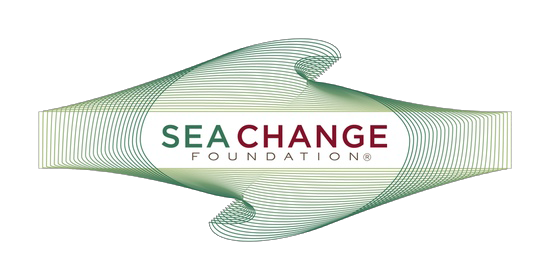Kigali Cooling Energy Efficiency Program
Cooling is essential to human health and prosperity and is becoming more important as the world urbanizes, economies grow, and the planet warms. Rising global temperatures and deadly heatwaves have increased the need for access to cooling and refrigeration for better health, food, education, and medicine storage. Current cooling technologies, such as air conditioning and refrigeration, mostly rely on human-made hydrofluorocarbons (HFCs) that are almost 10,000 times more potent than CO2 in causing global warming. In addition to HFCs, cooling uses huge amounts of electricity, usually fossil fuel-based, making it a critical carbon emissions reduction challenge. Globally, by 2050, the number of single-room air conditioners is expected to grow from about 1.6 billion to 5.6 billion. In terms of electricity use and greenhouse gas emissions, that is equivalent to adding several new countries to the world. Left unchecked, HFCs could account for nearly 20% of climate pollution by 2050.
Research from Lawrence Berkeley National Laboratory shows that shifting toward 30% more efficient air conditioners while phasing out HFCs could effectively offset the construction of as many as 1,500 power plants. By the year 2050, total avoided CO2-equivalent emissions could amount to 4 billion tons annually worldwide—more than any single country other than China and the United States currently emit—with 1 billion tons of emissions avoided in India alone.
To encourage countries to aggressively phase out HFCs by the early 2020s, Sea Change Foundation, along with 17 other foundations and individuals, dedicated $51 million to pair energy efficiency improvements with the transition away from HFCs as part of a historic deal, the Kigali Amendment to the Montreal Protocol. Donor nations also established a $27 million fund to provide financial assistance for developing nations. Importantly, these pools of funding responded to requests by developing countries for support to realize an ambitious transition timeline. Under the Kigali Amendment, countries responsible for 95% of the world’s HFC emissions agreed to freeze their emissions by 2024 or sooner. The collective funding commitment to support the Montreal Protocol amendment represents an extraordinary return on philanthropic investment and a potential model for future philanthropic collaboration. If fully implemented, the Kigali Amendment will avert just under 0.5° C in global temperature rise by the end of the century. Adding energy efficiency improvements will almost double that benefit.
Key funding partners include Barr Foundation, Bill Gates, Children’s Investment Fund Foundation, ClimateWorks Foundation, David and Lucile Packard Foundation, Heising-Simons Foundation, John D. and Catherine T. MacArthur Foundation, Josh and Anita Bekenstein, John and Ann Doerr, Laura and John Arnold, Oak Foundation, Open Philanthropy Project, Pisces Foundation, Sandler Foundation, William and Flora Hewlett Foundation, and Wyss Foundation.
¹ The Montreal Protocol, finalized in 1987, is a global agreement to protect the ozone layer by phasing out the production and consumption of ozone-depleting substances. The Protocol’s adjustment provision enables Parties to respond to new scientific information, such as the damaging effect of HFCs to our climate.
Kigali Cooling Energy Efficiency Program
Cooling is essential to human health and prosperity and is becoming more important as the world urbanizes, economies grow, and the planet warms. Rising global temperatures and deadly heatwaves have increased the need for access to cooling and refrigeration for better health, food, education, and medicine storage. Current cooling technologies, such as air-conditioning and refrigeration, mostly rely on human-made hydrofluorocarbons (HFCs) that are almost 10,000 times more potent than CO2 in causing global warming. In addition to HFCs, cooling uses huge amounts of electricity, usually fossil fuel-based, making it a critical carbon emissions reduction challenge. Globally, by 2050, the number of single-room air conditioners is expected to grow from about 1.6 billion to 5.6 billion. In terms of electricity use and greenhouse gas emissions, that is equivalent to adding several new countries to the world. Left unchecked, HFCs could account for nearly 20% of climate pollution by 2050.
Research from Lawrence Berkeley National Laboratory shows that shifting toward 30% more efficient air conditioners while phasing out HFCs could effectively offset the construction of as many as 1,500 power plants. By the year 2050, total avoided CO2-equivalent emissions could amount to 4 billion tons annually worldwide—more than any single country other than China and the United States currently emit—with 1 billion tons of emissions avoided in India alone.
To encourage countries to aggressively phase out HFCs by the early 2020s, Sea Change Foundation, along with 17 other foundations and individuals, dedicated $51 million to pair energy efficiency improvements with the transition away from HFCs as part of a historic deal, the Kigali Amendment to the Montreal Protocol.¹ Donor nations also established a $27 million fund to provide financial assistance for developing nations. Importantly, these pools of funding responded to requests by developing countries for support to realize an ambitious transition timeline. Under the Kigali Amendment, countries responsible for 95% of the world’s HFC emissions agreed to freeze their emissions by 2024 or sooner. The collective funding commitment to support the Montreal Protocol amendment represents an extraordinary return on philanthropic investment and a potential model for future philanthropic collaboration. If fully implemented, the Kigali Amendment will avert just under 0.5° C in global temperature rise by the end of the century. Adding energy efficiency improvements will almost double that benefit.
Key funding partners include Barr Foundation, Bill Gates, Children’s Investment Fund Foundation, ClimateWorks Foundation, David and Lucile Packard Foundation, Heising-Simons Foundation, John D. and Catherine T. MacArthur Foundation, Josh and Anita Bekenstein, John and Ann Doerr, Laura and John Arnold, Oak Foundation, Open Philanthropy Project, Pisces Foundation, Sandler Foundation, William and Flora Hewlett Foundation, and Wyss Foundation.
¹ The Montreal Protocol, finalized in 1987, is a global agreement to protect the ozone layer by phasing out the production and consumption of ozone-depleting substances. The Protocol’s adjustment provision enables Parties to respond to new scientific information, such as the damaging effect of HFCs to our climate.

